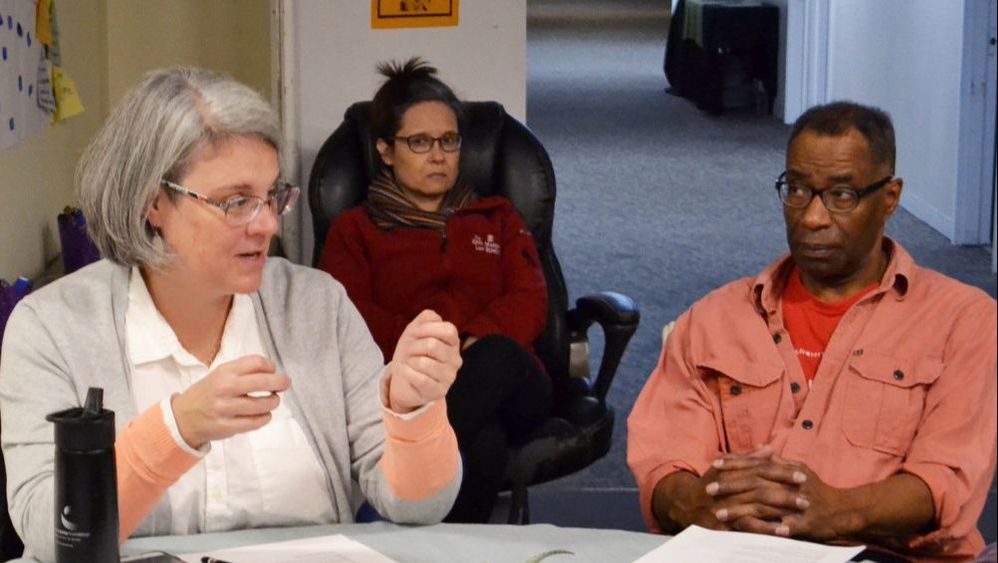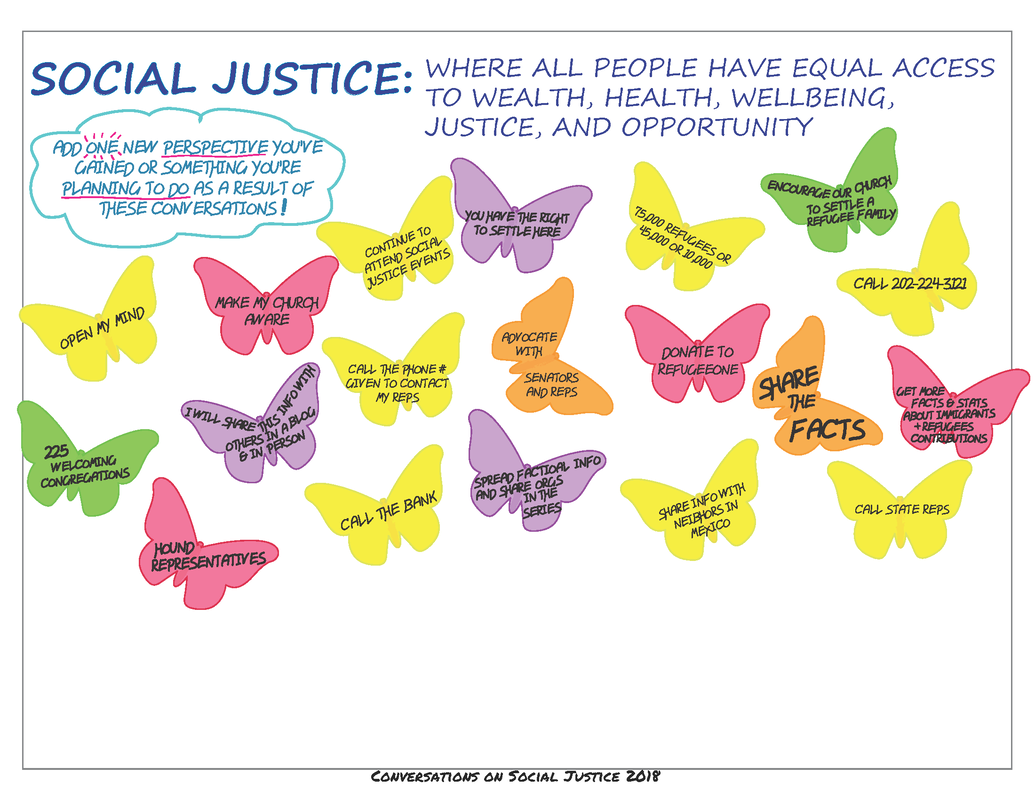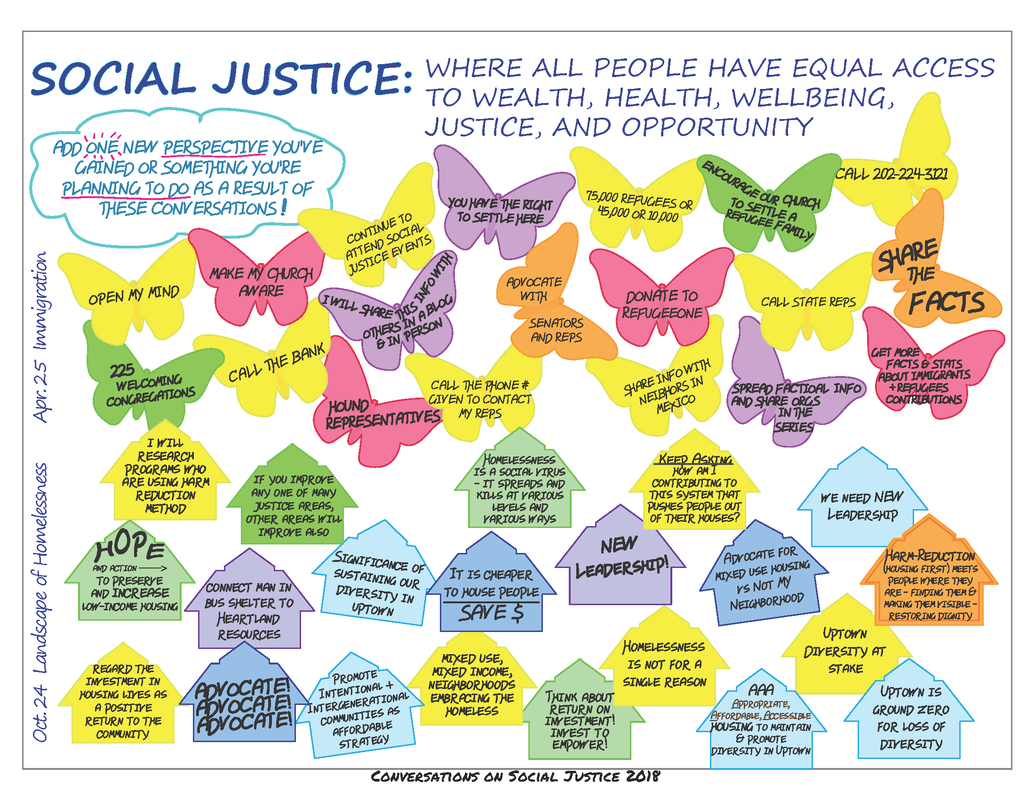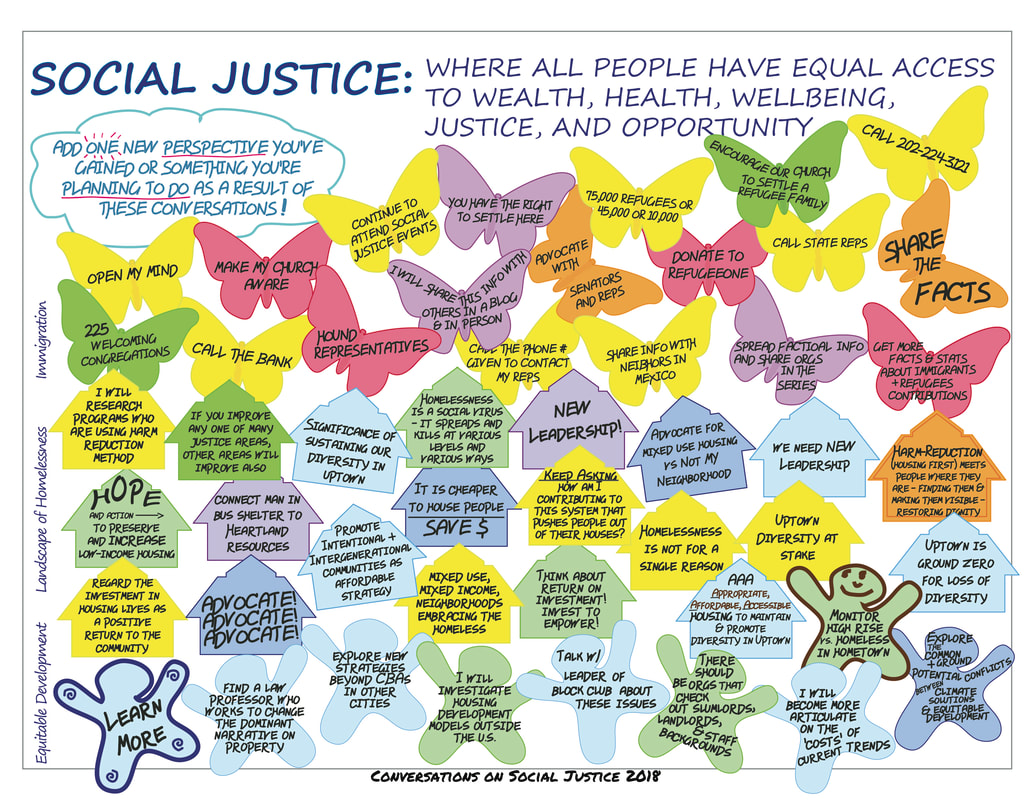According to Ritter, a dominant narrative is a story people tell about how the world operates. Such narratives, she says, are also a wall ONE Northside keeps coming up against in their campaign for equity across Chicago’s North Side. At the foundation of the organization’s work is housing, which Ritter says is “existential to what we do,” and a critical issue in Uptown, where both ICA and ONE Northside are based.
Home ownership is one of the ultimate demonstrations of the American Dream. As the story goes, if you work hard and play by the rules, you will be able to afford a home. As Ritter’s line of questioning suggests, the rules are not always fair. In Uptown, affordable housing has historically been available through single-room occupancy (SRO) buildings such as The Lorali and Wilson Men’s Hotel. As the neighborhood changes, however, more and more of these buildings are being converted to luxury condos. In some instances, developers have even illegally evicted residents from SROs. To help protect the diminishing supply of affordable units, ONE Northside successfully urged Chicago City Council to pass an SRO Preservation Ordinance that requires building owners to negotiate with affordable housing developers for at least six months before they can sell to market-rate developers. Despite the Ordinance, two buildings in Uptown with more than 300 units of affordable housing were sold to market-rate developers. The underlying question, “who deserves to live here?”, arose again and again across Conversations on Social Justice. Back in April, speakers from Refugee One, Chicago Religious Leaders Network, and Dominican University revealed the myriad ways in which the rules are rigged against immigrants to the United States. In October, speakers from Heartland Alliance Health and Sarah’s Circle advocated for a harm reduction approach to addressing housing instability that seeks to accept clients’ circumstances rather than imposing restrictions on who can receive services. The bottom line, however, is still about a dominant narrative that fails to see housing as a fundamental human right. Until that story changes, inequality and suffering will persist. Narrative change is central to ICA programs. In 2011, the accelerate77 program uncovered over 900 individuals, organizations, and projects working to sustain their communities, each posing a counter-narrative to the idea that sustainability work is done primarily by well-funded, downtown institutions. More recently in Uptown, the Out and About Uptown’s Coast series broadened understanding of the coastal zone in Uptown as not just a site to be developed but a community with a rich history and natural assets to be preserved and protected. Conversations on Social Justice invites people not just to listen, but to engage and reflect through focused conversation. ICA staff member Samantha Sainsbury asked participants to imagine new mindsets for equitable development, evoking responses promoting a willingness to experiment and change old rules, to redefine the American Dream in a more inclusive light, and to understand housing development and community development as inextricably linked. At the event of the reflection, participants wrote on a card one action or new learning they will take from the conversation. Those cards were posted to a banner already covered with reflections from the past two events. The evolution of the banner across the three events can be seen below. Comments are closed.
|
|
4750 N Sheridan Rd, Chicago, IL 60640
773 769 6363 x 335 |
Copyright 2022. The Institute of Cultural Affairs. All rights reserved.




